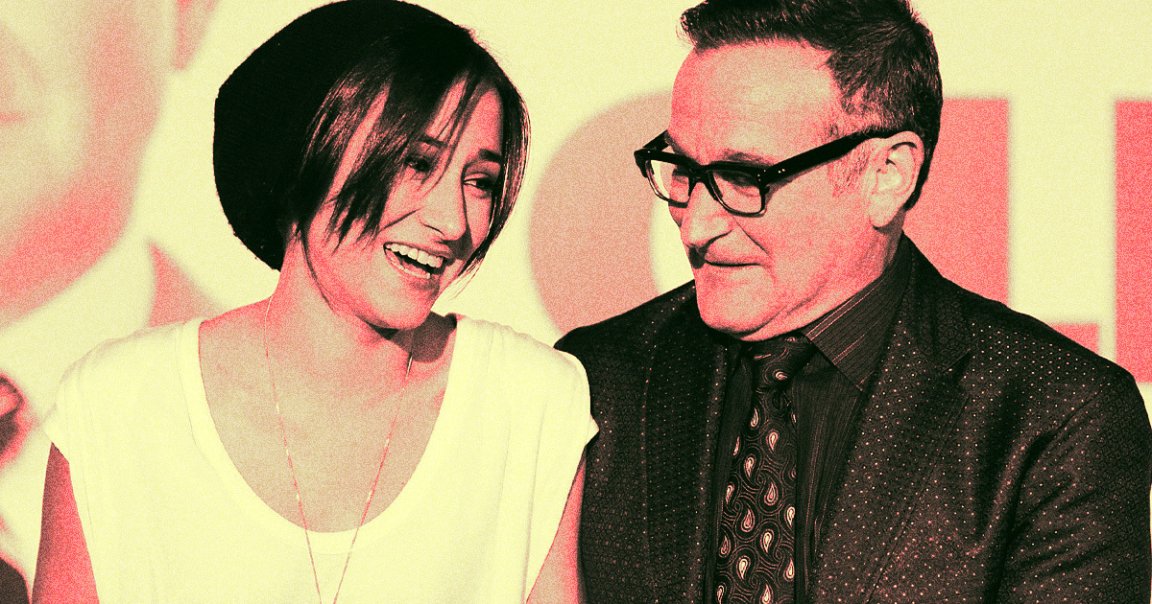
AI-bsolutely Not
Robin Williams’ daughter Zelda is fed up with artificial intelligence being used to mimic her father’s voice.
In an Instagram story transcribed by The Hollywood Reporter, Williams said that she stands in solidarity with the Screen Actors Guild (SAG) protests against increasing the use of AI in Hollywood in part because of the ways the technology has been used to recreate her father’s inimitable voice.
“I am not an impartial voice in SAG’s fight against AI,” the daughter of the late actor wrote in a since-expired post. “I’ve witnessed for YEARS how many people want to train these models to create/re-create actors who cannot consent, like Dad.”
Since July, the actors’ guild has been on strike as directors and producers move forward with attempts to replace actors with AI. As Williams pointed out, this use of the technology “isn’t theoretical” but is instead “very real.”
“I’ve already heard AI used to get his ‘voice’ to say whatever people want and while I find it personally disturbing, the ramifications go far beyond my own feelings,” Williams wrote.
Valley of the Uncanny
Curiously enough, the troubled comedic superstar was in two notable films about AI: 1999’s “Bicentennial Man” based on Isaac Asimov and Robert Silverberg’s “The Positronic Man,” and Steven Spielberg’s much-loathed 2001 flick “AI Artificial Intelligence,” in which he had a small part voicing a hologram called “Dr. Know.”
While Williams didn’t mention by name any specific projects that used or are planning in the future to use AI replications of her father’s voice or likeness, he certainly would not be the first actor to be “brought back from the dead” using the technology.
As the BBC reported over the summer, the rise of the “digital twin,” or AI-generated facsimile of people trained on footage from their pasts, is extensive. Companies are rushing to license digital twins for all kinds of people, from actors who died long ago like James Dean to non-thespian public figures like Rosa Parks and Bettie Page.
While digital resurrections aren’t exactly new —who can forget the infamous Tupac hologram that rapped alongside Snoop Dogg and Dr. Dre at Coachella in 2012 — advances in AI are making this uncanny use case all the more common.
“Living actors deserve a chance to create characters with their choices, to voice cartoons, to put their HUMAN effort and time into the pursuit of performance,” Williams continued in her post, highlighting one the best arguments against AI cloning.
“These re-creations are, at their very best, a poor facsimile of greater people,” she added, “but at their worst, a horrendous Frankensteinian monster, cobbled together from the worst bits of everything this industry is, instead of what it should stand for.”
More on AI: Suing Writers Seethe at OpenAI’s Excuses in Court